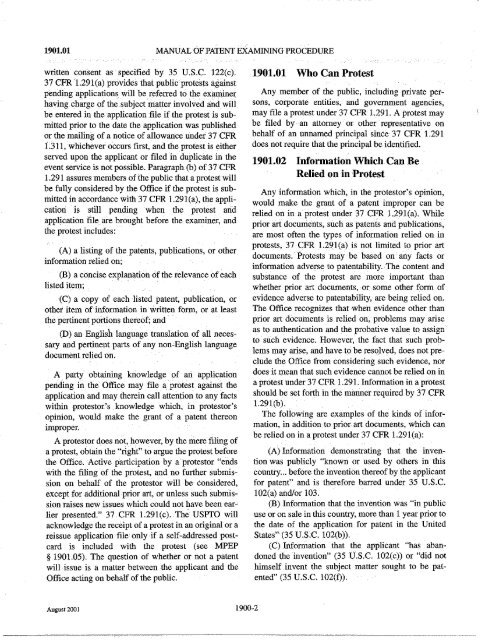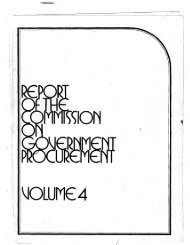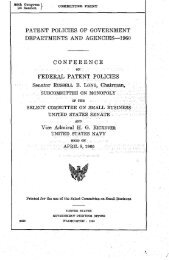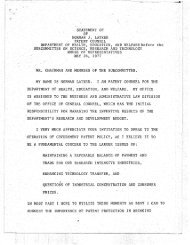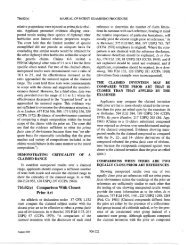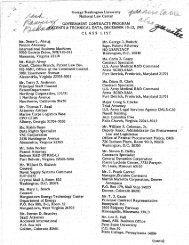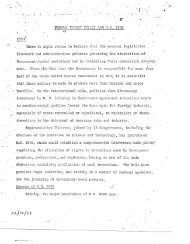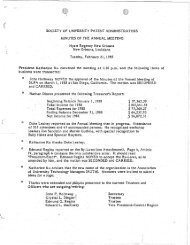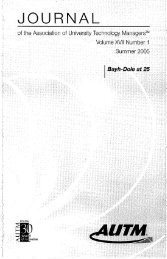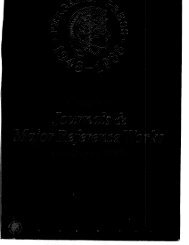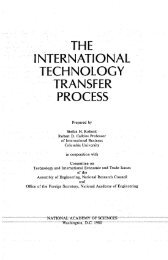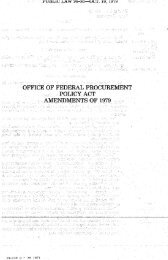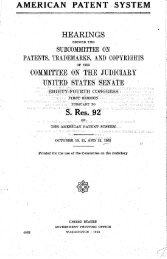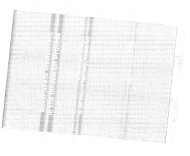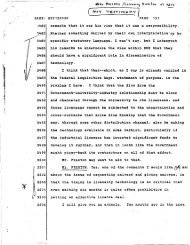The Subject Patent Already Has Underlining or ... - Bayhdolecentral
The Subject Patent Already Has Underlining or ... - Bayhdolecentral
The Subject Patent Already Has Underlining or ... - Bayhdolecentral
You also want an ePaper? Increase the reach of your titles
YUMPU automatically turns print PDFs into web optimized ePapers that Google loves.
1901.01 MANUALOF PATENT EXAMlNINGPROCEDURE<br />
written consent as specified by 35 U.S.C. 122(c).<br />
37 CFR1.29l(a) provides that public protests against<br />
pending ajlplications will be referred to the exllllliner<br />
having charge of the subjectmatter involved and will<br />
be entered in the application file if the protest is submitted<br />
pri<strong>or</strong> to the date the application was published<br />
<strong>or</strong> the mailing of a notice of allowance under 37 CFR<br />
1.311, whichever occurs first, and the protest is either<br />
served upon the applicant <strong>or</strong> filed in duplicate in the<br />
event service is not possible. Paragraph (b) of 37 CFR<br />
1.291 assures members of the public that a protest will<br />
be fully considered by the Office if the protest is submitted<br />
in acc<strong>or</strong>dance with 37 CFR 1.29l(a), the application<br />
is still pending when the protest arid<br />
application file are brought bef<strong>or</strong>e the examiner, and<br />
the protest includes:<br />
(A) a listing of the patents, publications, <strong>or</strong> other<br />
inf<strong>or</strong>mation relied on;<br />
(B) a concise explanation of the relevance of each<br />
listed item; ,<br />
(C) a copy of each listed patent, publication, <strong>or</strong><br />
other item ofinf<strong>or</strong>mation in written f<strong>or</strong>m, <strong>or</strong> at least<br />
the pertinent p<strong>or</strong>tions thereof; and<br />
(0) an English language translation of all necessary<br />
and pertinent parts of any noneEnglish language<br />
document relied on.<br />
A party obtaining knowledge of an application<br />
pending in the Office may file. a protest against the<br />
application and may therein call attention to any facts<br />
within. protest<strong>or</strong>'s knowledge which, in protest<strong>or</strong>'s<br />
opinion, would make the grant of a patent thereon<br />
improper.<br />
A protest<strong>or</strong> does not, however, by the mere filing of<br />
a protest, obtain the "right" to argue the protest bef<strong>or</strong>e<br />
the Office. Active participation by a' protest<strong>or</strong> "ends<br />
with the filing of the protest, and no further submission<br />
on behalf of the protest<strong>or</strong> will be considered,<br />
except f<strong>or</strong> additional pri<strong>or</strong> art, <strong>or</strong> unless such submission<br />
raises new issues which could not have been earlier<br />
presented." 37 CFR 1.29l(c). <strong>The</strong> USPfO will<br />
acknowledge the receipt of a protest in an <strong>or</strong>iginal <strong>or</strong> a<br />
reissue application file only if a self-addressed postcard<br />
is included with the protest (see MPEP<br />
§ 1901.05). <strong>The</strong> question of whether <strong>or</strong> not a patent<br />
will issue is a matter between the applicant and the<br />
Office acting on behalf of the public.<br />
August2001<br />
1900-2<br />
1901.01 Who Can Protest<br />
Any member of the public, including private persons,<br />
c<strong>or</strong>p<strong>or</strong>ate entities, and government agencies,<br />
may file a protest under 37 CFR 1.291. A protest may<br />
be filed by· an att<strong>or</strong>ney <strong>or</strong> other representative on<br />
behalf of an unnamed principal since 37 CFR 1.291<br />
does not require that the principal be identified.<br />
1901.02 Inf<strong>or</strong>mation Which Can Be<br />
Relied on in Protest<br />
Any inf<strong>or</strong>mation which, in the protest<strong>or</strong>'s opinion,<br />
would make the grant of a patent improper can be<br />
relied on in aprotest under 37 CFR 1.29l(a). While<br />
pri<strong>or</strong> art documents, such as patents and publications,<br />
are most often the types of inf<strong>or</strong>mation relied on in<br />
protests, 37 CFR 1.29l(a) is not limited to pri<strong>or</strong> art<br />
documents. ' Protests may be based on' any facts <strong>or</strong><br />
inf<strong>or</strong>mation adverse to patentability. <strong>The</strong> .content and<br />
substance of the protest are m<strong>or</strong>e imp<strong>or</strong>tant than<br />
whether pri<strong>or</strong> art documents, <strong>or</strong> some other f<strong>or</strong>m of<br />
evidence adverse to patentability, are being relied on.<br />
<strong>The</strong> Office recognizes that when evidence other than<br />
pri<strong>or</strong> art documents is relied on, problems may arise<br />
as to authentication and the probative value to assign<br />
to such evidence. However, the fact that such problems<br />
may arise, and have to be resolved, does not preclude<br />
the Office from considering such evidence, n<strong>or</strong><br />
does it mean that such evidence cannot be relied on in<br />
a protest under 37 CFR 1.291.lnfoI1llation in a protest<br />
should be set f<strong>or</strong>th in the manner required by 37 CFR<br />
1.291(b).<br />
<strong>The</strong> following are examples of the kinds of inf<strong>or</strong>mation,<br />
in addition to pri<strong>or</strong> art documents, which can<br />
be relied on in a protest under 37 CFR 1.29l(a):<br />
(A): Inf<strong>or</strong>mation demonstrating that the invention<br />
was publicly "known <strong>or</strong> used by others in this<br />
country... bef<strong>or</strong>e the invention thereof by the applicant<br />
f<strong>or</strong> patent" and is theref<strong>or</strong>e barred under 35 U.S.C.<br />
102(a) and/<strong>or</strong> 103.<br />
(B) Inf<strong>or</strong>mation that the invention was "in public<br />
use <strong>or</strong> on sale in this country, m<strong>or</strong>e than 1 year pri<strong>or</strong> to<br />
the date of the application f<strong>or</strong> patent in the United<br />
States" (35 U.S.C. 102(b».<br />
(C) Inf<strong>or</strong>mation that the applicant "has abandoned<br />
the invention" (35 U.S.C. 102(c» <strong>or</strong> "did not<br />
himself invent the subject matter sought to be patented"<br />
(35 U.S.c. 102(f).


